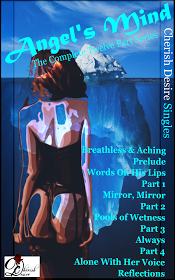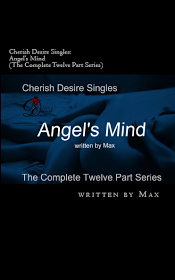For Writers (June 2013)
I believe we have forgotten how to learn. It's as simple as that. Look around you and you see a world full of people with these giant computers in their skulls, yet most of them are clamouring for the same stuff that they had before and validation that what they believe is right. Intellectual endeavours that exceed a half hour investment are too difficult. Knowledge is lost because facts are littered all around us. We've become dependent on other people spoonfeeding what we should know, what we should do, all to get approval of one form or another. The carrot and stick have made risk avoidance, avoidance in general, a way of life.
As an author you face a whole set of challenges that either break you in or crush your time. At a high level, I'm talking about authoring, editing, and publishing. Promoting and marketing are such big topics that they deserves a blog entry for themselves. Authors do not have a choice. They must learn how to learn. They must take risks. It's really just a question of when an author pins down their comfort level, and how they faciliate or delegate what they are not comfortable with.
There's nothing wrong with what you already know. It's just that there's so much more to know. Baby steps are the logical choice for most folks, but that leaves them with a languishing manuscript that becomes an endless labor of love. They may never even get past that. They might not even be lucky enough to have someone stumble across it and publish it later. If baby steps are where you are at, then at least you've started.
For the full immersion crew, this is my roadmap. I'm sure there are other ways to do it, but this is what I've come up with which works for me. Maybe it gives you some insight into your own processes. Maybe it helps readers understand what's going on behind the magical curtain. Maybe it just puts in perspective today's agonies. Hopefully, it helps you keep pushing forward.


Why pick this book? Because being an author never has a punch out time on the clock. "Angel's Mind (The Complete Twelve Part Series)" was originally five parts. Then it became six when the ending wasn't satisfactory. And then it became twelve when I proofed it for print and realized it was far too right brained. I'd say that's where it will end, but you never know. Ironically the feedback I get as an author is mostly orthogonal to what I'm concerned about. My worries center around how the stories fit together to portray a critical event that defines something Angel can never escape, and whether it's sexy enough to promote physical and mental tension. Obviously I've gone back to this set of stories several times, and as an author you should expect doing just that. Each time I've gone back, I've done some editing. As an author you should expect that, too. Probably most importantly, each time I've hit a stopping point and closed the stories. At some point you must publish, or all the writing in the world won't help you. As an author you have to accept some imperfections that will require revisiting and starting the edit process through publishing all over again. Everything can be improved.
To cut down on the churn and floundering I went through early on here's my brief outline of the process and journey. Again, other people have other approaches. Take what makes sense, ping me with questions, and consider what you can do to be better than you are now. Learn. It's what we must do.
Authoring. The bold proposal.
If you are a planner then plan your writing in bullet points. If you are not a planner then keep a scribble pad for making notes to yourself about details as you write them. In either case you probably won't finish the entire process in one sitting, nor should you, so having your own cliff notes makes things much easier. Anticipate your plan and original ideas will likely lead to unexpected events in the story. That's writing. Add notes to your plan or your scribble pad on occasion but don't stop writing just because things are going someplace new. Do not snipe or pre-edit your writing. Write and write, go back and pick up where you left off, but write until you think you've got a beginning, middle, and end. Sometimes that means putting in placeholders for things like [fisting here] though maybe for you it will be [kissing here]. :) Read the whole thing outloud to yourself making notes and correcting minor errors as you go. If you can get from beginning to middle to end without feeling the need to add entire chunks of writing then you can move on to editing. If you cannot, if you've got verb tense, pacing, or transition issues, then go back to writing. Try to set aside a few hours to write and just write. You cannot be hash tagging social media, taking phone calls, and goofing around with graphics and the internet while writing an immerisive experience. If you run out of steam on a specific story then open up a new file and start the next one. Shifting to other characters and other plot lines does wonders for drawing out comparisons and contrasts that can renew your creative vision. Finish writing.Editing. Admitting you make mistakes.
If you are a planner then you have a plan with some notes to guide your editing. Some people have a formula for their stories, and that makes editing a bit easier. If you are not a planner then you need to think about how you are writing. This is a grey area, but to be honest non-planned writing turns out to have specific motivators you come to recognize over time. In my case, I tend to find recurring shapes and conflicts in my stories. I also tend to jumble timelines - which is an area where I expected to get a lot of complaints but no feedback may mean people are happy with a sex scene right up front and then the events leading to that after - which means keeping track of things can be much more important than a linear story line. I didn't learn the scribble pad until too late for some books. Fair warning it's almost impossible to go back to anything sizable and bullet out the story for editing. Editing is boring, monotonous, and irritating. Anticipate focusing for an hour, and if you don't get into the editing groove, then pick up something else to do. You cannot effectively edit while distracted, and you cannot impose consistency when disconnected from the story. That's editing. It requires immense concentration and willpower at times. If you find yourself adding sections or fluffing out portions of the story, take a step back and ask three important questions. Is the story lacking? Are the characters not coming through? Do I need to go back to writing? You cannot effective rewrite and edit a story at the same time. Quality goes down, your attention and focus shift, and the result is not ideal. Read the whole thing outloud to yourself in sections. If you can then have someone you are reading it to. Having an audience forces you to feel out the flow of the words as well as the underlying themes. Your brain will fill in gaps with assumptions that you've made, but the body language of your listener will give you a lot of clues when it comes to what is working and what is not. When you're done editing, then you're not done. Re-read the equivalent of the first two pages. Slowly. Outloud. Print it out. This is the part of your story that you have been skimming over for some time, and it's where you will likely have lingering typos that your eyes no longer want to see. Your final test from an editing perspective is a double check on your quality factors. Everyone has slightly different objectives and qualitative ways to measure their success. Bottom line, what is your customer expecting and have you delivered it?Publishing. All the things that aren't writing.
At this point you will need to adapt your story to whatever medium it will be delivered in. So here are some generic tips and checklist notes I have. Yours will definitely be different. Maintain a set of people you trust to read and provide feedback. People you trust. People who actually provide feedback. These should be people you know well enough to be able to consistently read between the lines. They will avoid confrontation and procrastinate. You may need to pull teeth to get the input you need. But you need at least one or two readers to beta test a story. More as it grows longer. Keep formatting simple. There are enough screw-ups that can and will happen with a straightforward document transformation to ePub. If you have have a complicated formatting layout then plan a great deal of time will be required to check every single page. Proofread all supporting promotional and author information that gets into the publication with the same detailed attention used to edit your story. Taking shortcuts proofing your bio is both tempting and a mistake. The same applies to the wonderful Dedication and bring Copyright pages. Typos will make you gnash your teeth later. I have a publishing checklist, and I think you will want one, too. Mine includes the following: Book Title Title Image Cover Image Reader Review Comments Description Cover Image Link Book Page Catalog Update Blog Update About Link Update Dedication Front Promo Back Promo Story List Word Doc Amazon Load Amazon Author Central Description ASIN and Buy Links Blog Announcement Twitter Announcement Tumblr Promo Publishing Log Update Most of those are pretty straightforward, but I want to focus on the last one. I keep a single file that lists every book I publish, its ASIN and ISBNs, and when it was most recently published and what edition it is. My editions are keyed to formats. So an AA release is pre-Kindle Fire. A BA release is on the new Kindle Fire template. A BB release is on the new Kindle Fire template with some internal updates. The date tells me when it was uploaded to Amazon. This becomes my worklist because I actively go back, re-read stories and books, and update them to at least the new Amazon format. Which sometimes means I flag things to go back to authoring because I see something I just don't like.Can this help you? I have no idea. But my assumption is that if I share some details about my process and then you consider your own process, it's a good thing. A lot of writers talk about when they write, how much time they write, how many words they produce, and their deadlines. But a lot of other tasks and activities need to be addressed along the way. Having your own personal process list and flow might make you more productive. That means more good things for folks to read. And that's winning.
Go tell your stories... and have fun.
Cherish Desire Erotica which is just trolling people who "never do anything wrong" while publishing "alarming and disturbing" erotic stories. We should have told "*dedicated* readers before publishing something" and gotten social media approval for fighting back against scammers. The Ladies of Cherish Desire "are clear examples of slut shaming" who enjoy sex and men who enjoy having sex with them, yet apparently are written with the intent to ride a poetry author's "meal ticket." Last week we heard "I need a cock in my mouth now" in response to beta readings of upcoming July releases - possibly the best accolade for second quarter 2013 - and finished subtly killing off a main character and giving birth to his fully grown daughter without asking why no one cared about that on Goodreads. Be sure to check us out on Twitter where we spam followers with sexy images and bits of humour, architecture, art, and music. We also have a Facebook page where we perv other people's naughty photos and occasionally make pithy replies to people's status updates. Keep it real, and push it... push it real good.



